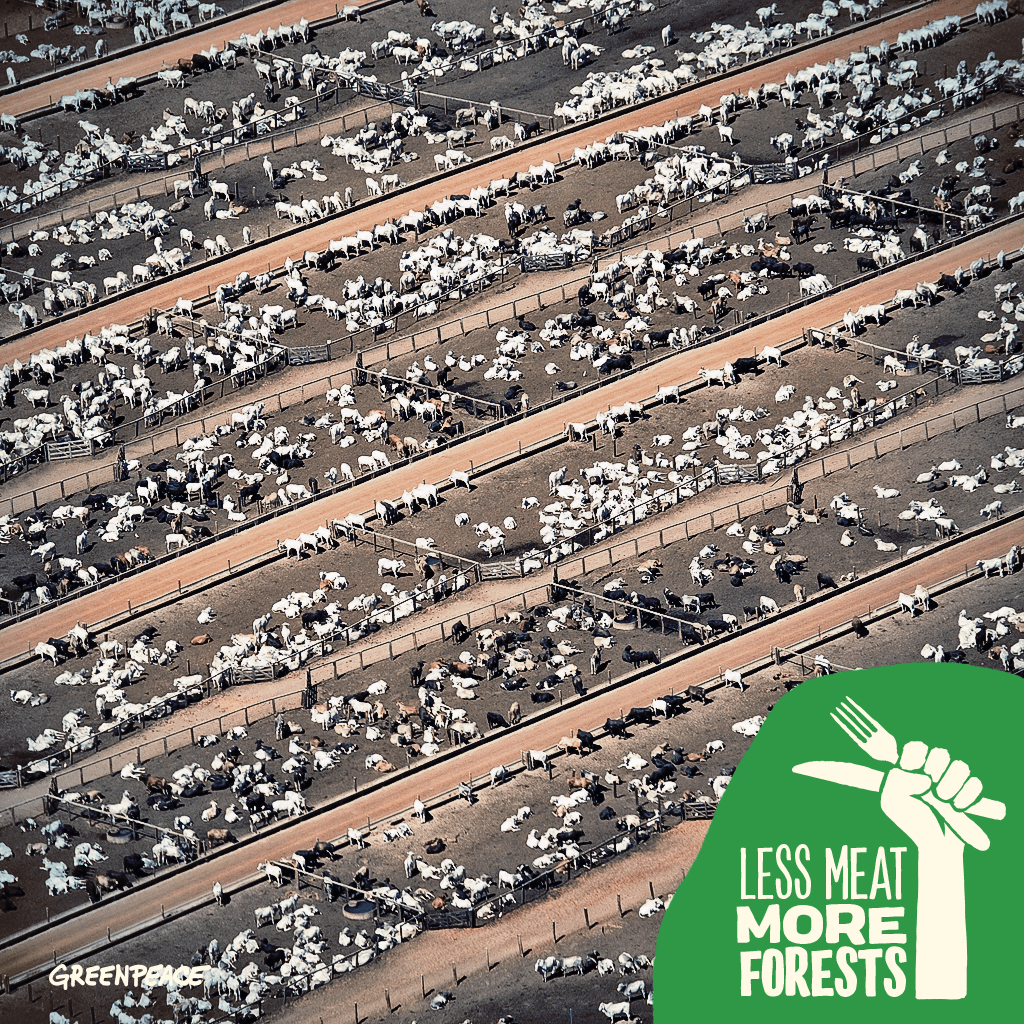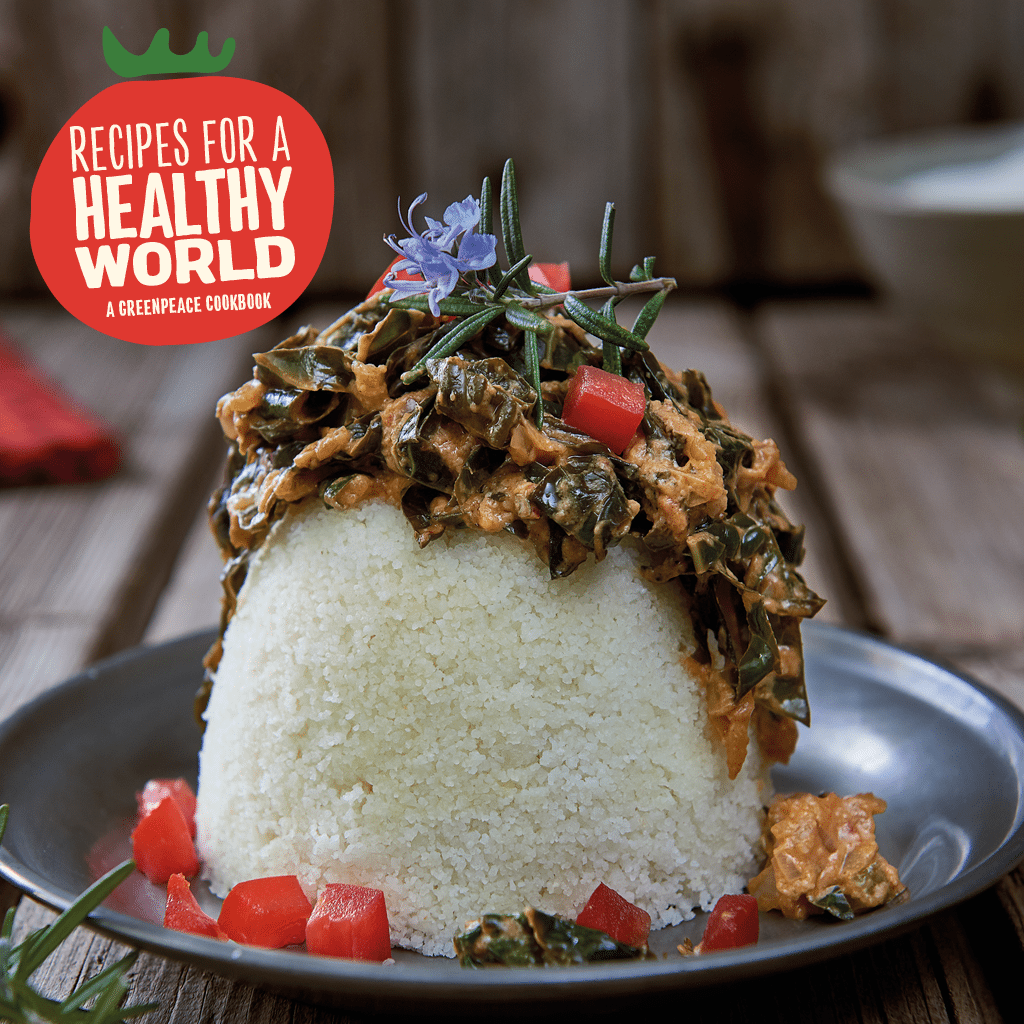and 5 things we can do to fix it
Food is fascinating. It sustains us, but it’s so much more than that. We use food as a way to celebrate, make friends and even make statements about who we are and what we stand for. Food production supports farming families. But the intensive production of some kinds of food is taking a heavy toll on our planet, our environment and ourselves. Here’s five ways the food system is broken, and how we can change it.

-
When it’s messing with our water
Intensive animal agriculture is unsustainable, literally. It’s hard to keep it going. That’s why the production of meat and dairy relies so heavily on inputs like fertilisers and pesticides, as well as pulling water out of our rivers for irrigation. Not to mention the inevitable, messy end-products of animal digestion (we’re talking about poop). All of this can end up leaching into groundwater (which is what we drink) and being washed into our rivers. The high levels of nitrogen in agricultural run-off can cause toxic algae to choke out native fish and plant species. That’s not the end of it, either. Eventually rivers flow out to the sea, where the sediment and run-off from agriculture can make sea critters sick, including our beautiful Great Barrier Reef.
-
When it’s leaving koalas without a home?!
Industrial animal agriculture is driving deforestation all around the world. In our own backyard, we can see the effects in Queensland, where millions of hectares of thriving native forest are being cleared to make way for cattle grazing land. It’s heartbreaking to know that just in the years between 2013 and 2015, 68 million native animals (like koalas) died due to deforestation in Queensland.
-
When animals don’t have what they need to live a good life
Industrial agriculture is all about maximising profit, often at the expense of the animals involved. Cramped cages, inhumane practices and filthy conditions put our four-legged friends at risk of pain and disease, and the effects can flow on to humans, too.
-
When it’s making us sick
Animals crammed in together in feedlots or battery cages are at high risk of catching diseases from each other. They’re often heavily medicated with antibiotics – sometimes even as a preventative measure – and germs are changing to resist even the strongest of antibiotics. This is scary news, because it means those antibiotic-resistant germs are starting to make humans sick too, with devastating consequences. Not to mention, eating lots of meat and dairy can put us at risk of things like heart disease. Changing our food system has a huge role to play in human health. Find out the full story in chapter 3 of our latest report: Less is More, reducing meat and dairy for a healthier Life & Planet.
-
When it’s wreaking havoc with the climate
While we’re tackling coal and oil head on, a lesser-known (but still huge) contributor to climate change is industrial animal agriculture. Animal agriculture contributes 14% of all global greenhouse emissions, counting the carbon that gets released into the atmosphere when previously growing forests are cleared or burnt to make way for farmland. Not only that, but animals emit methane – a gas which is 25 times more potent than CO2.
So how do we fix the food system?
We want to see a 50% reduction in the farming and eating of animal products by 2050. It’s ambitious, and for it to work we need governments and corporations on board to make real change. The issues within our food system are too complex for any single solution. This isn’t about everyone going vegan, or farmers being hounded for trying to make a living. Farmers using sustainable practices need to be celebrated, we need stronger regulations to protect our water and forests from the effects of animal agriculture and we need to ensure that animal farming is done in a way that’s kind to all critters, no matter if they have two legs, four legs or feathers. As for what you can do – check out some simple ways to take action here:
- Find out more! Knowledge is power, so learn all you can about about the impact of industrial meat & dairy production has on our forests, water, climate and health on our website, and tell your friends all about it. If you’re a researcher at heart, check out the full report here.
- Support Team Plant (possibly our cutest campaigners ever) on their mission:
Share the video with your friends! - Get inspired! Check out the successes by communities around the world who are changing their food systems locally.
And of course… - Reduce your meat & dairy consumption:
A little change can have a big impact, and if you’re looking some vegan recipe inspiration, check out our Greenpeace Cookbook.



